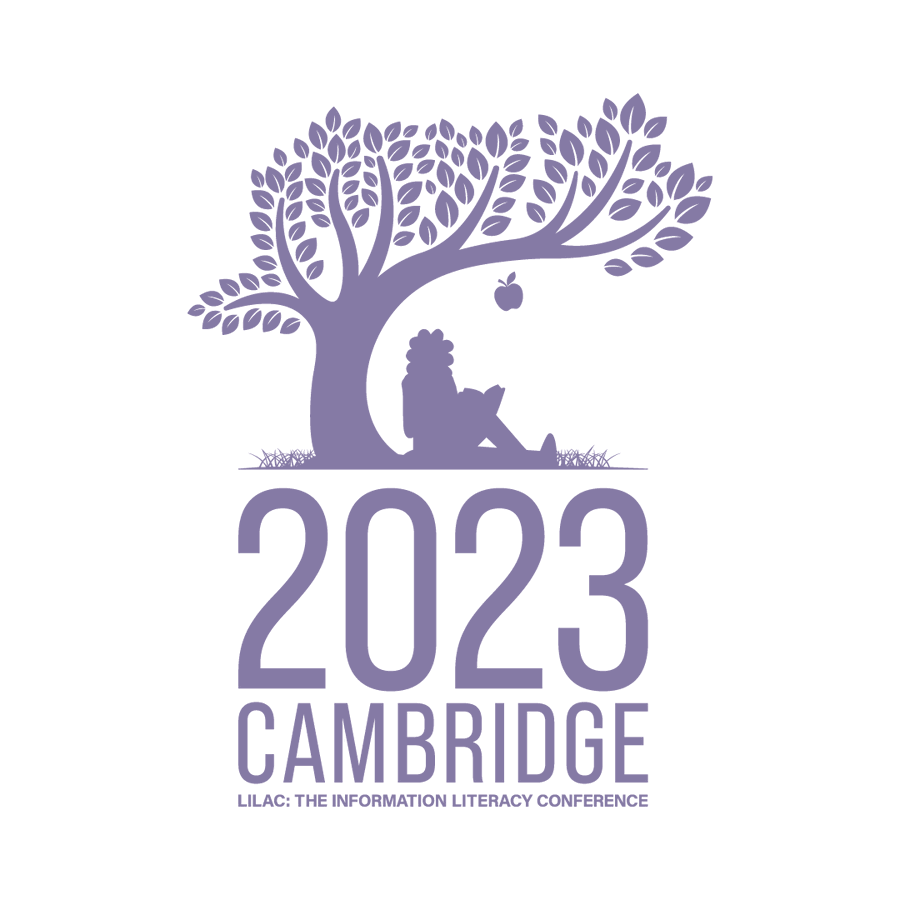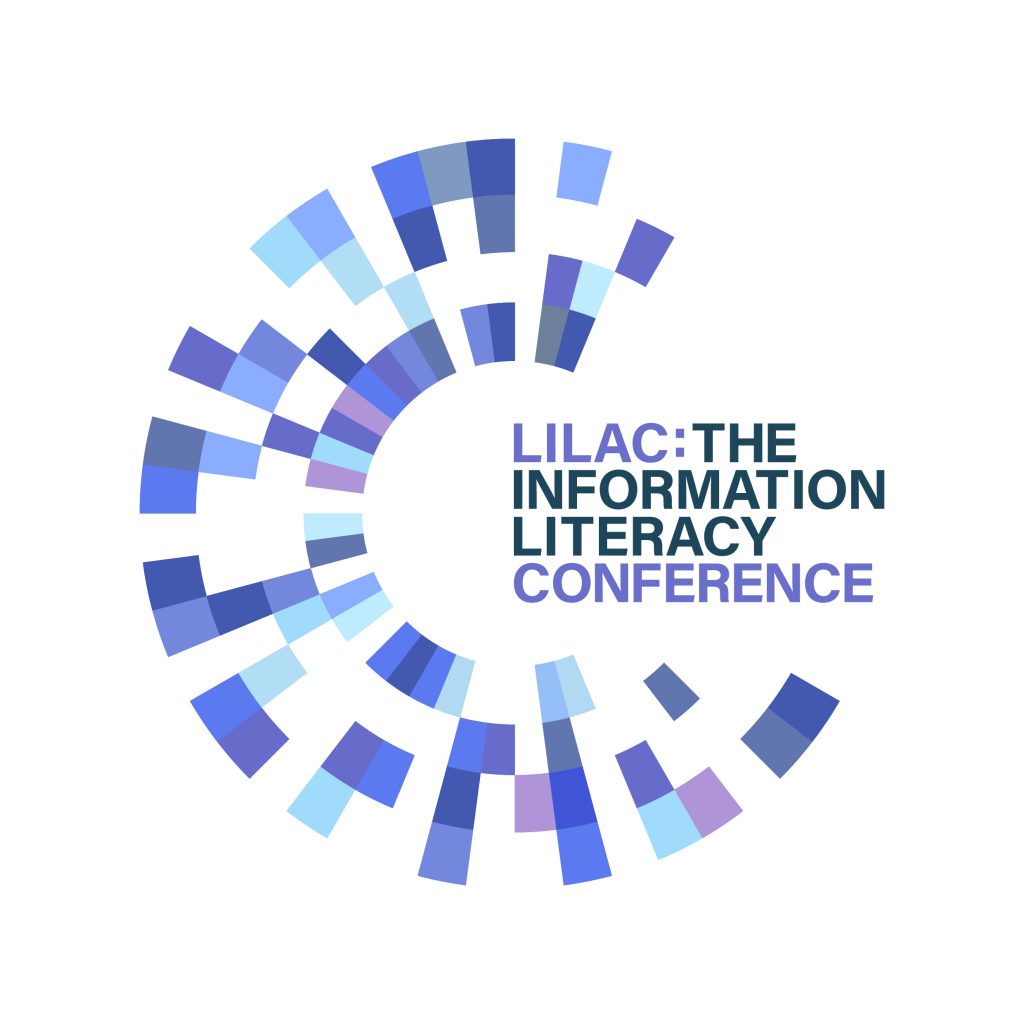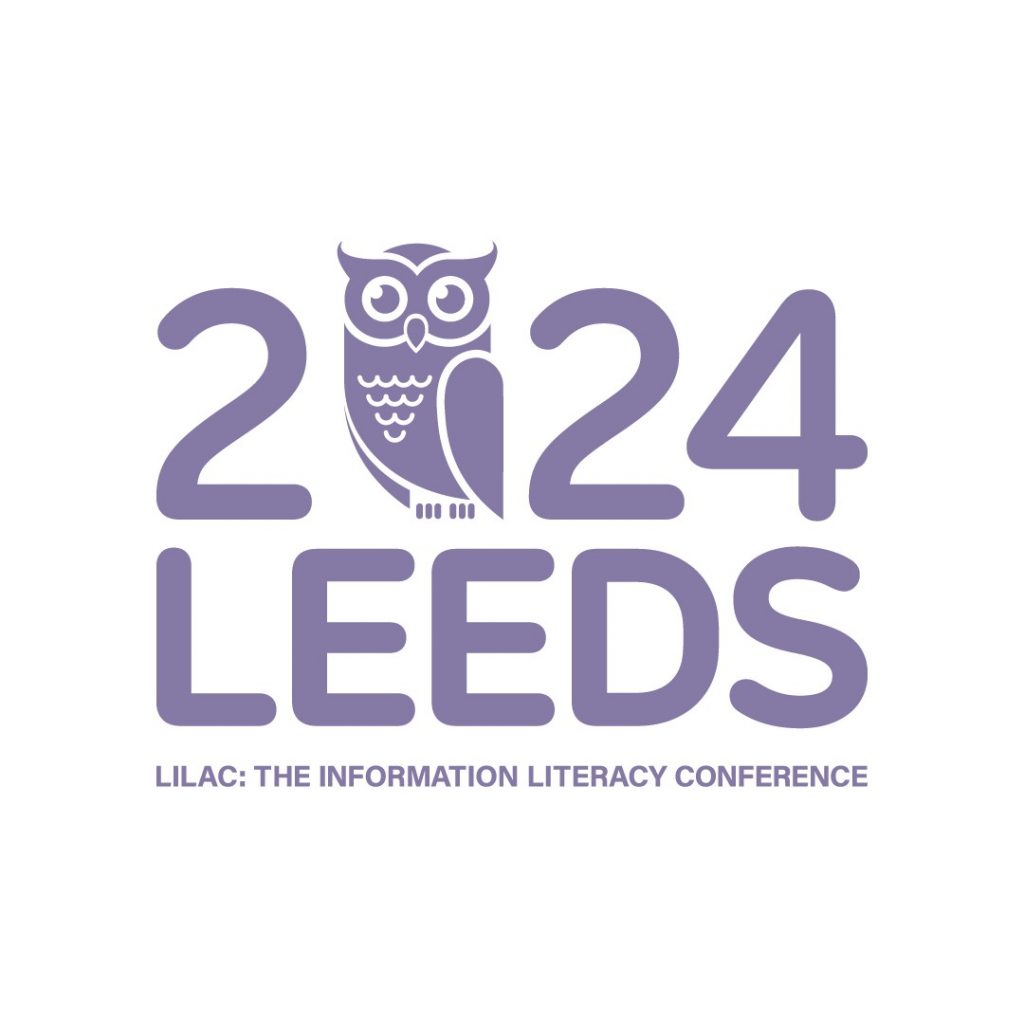Laura Woods, Deputy Chair of the CILIP Information Literacy Group, has provided some reflections about her experience at LILAC 2023.

Last week, librarians from around the world descended upon the University of Cambridge to discuss and celebrate information literacy. It was the annual LILAC conference, always the highlight of my professional year! I am extremely lucky to have been able to attend LILAC every year since 2016, making this my sixth LILAC (or seventh including FestivIL, the online conference hosted by LILAC during the covid-19 restrictions in 2021).
As always, I have come away from LILAC with a brain buzzing with ideas. I have many notes to work through and share with my colleagues, as well as new ideas for projects and interesting references to follow up. Here though, I thought I would share a condensed version of my highlights of the three days, from my perspective as a subject librarian in higher education.
I attended many sessions, too many to do justice to in a single blog post! But after a while, I started to notice some key themes running through various sessions. So here are the main themes I picked up on and will carry forward in my practice.
Accessibility and inclusion
One of the things I love about LILAC as a conference is their strong focus on accessibility and inclusion, both in the papers presented and within the conference organisation (the fully vegetarian/mostly vegan menu across all three days, provided in advance with full allergen details provided, was a particularly welcome introduction this year!). This theme appeared right from the first keynote – the wonderful New Professionals panel discussion, who talked about a wide range of issues but kept returning to the need for building inclusive cultures, and tackling racism and other forms of oppression both within our teaching and within our workplaces. To me, this highlighted the need for this work to continue at all levels – too often, the work of social justice falls on people who are newer in their careers, and have the least structural power.
Which is why it was great to see the same themes picked up in Regina Everett’s keynote on the final day. As a library director, Regina oversaw the “covid pivot” to online teaching, and used her keynote to reflect on the path towards truly inclusive technology-enhanced learning. Regina’s discussion of the ways in which marginalised students are disadvantaged in an online learning environment, and how her library has worked to tackle this, made me think about whose needs we prioritise, and how we can ensure no one is left behind.
Maria King’s day 2 keynote on accessibility within libraries and education solidified for me the need for ensuring that accessibility is central to everything we do. Seeing accessibility as an afterthought, something that is the responsibility of a few people to “fix” once the “main” processes have been put in place, isn’t good enough. Maria’s discussion covered topics such as the need to support library workers, not just library users, with accessibility needs – something I think is often overlooked!
Rethinking our assumptions
Several sessions made me reconsider prior assumptions, either my own or those that are commonly found in media and in the literature. The first of these was Elizabeth Brookbank’s talk on how students use TikTok to find information. I think there is a tendency to fearmonger over young people’s uses of social media and digital technologies. What Elizabeth’s research has suggested (although she notes it is in an early stage!) is that although the students she interviewed initially seemed blasé about the privacy and data security issues associated with TikTok, they actually had a reasonably sophisticated understanding of them, and were aware of ways to ensure the information they found and used was suitable for their purposes. I was also fascinated to hear about the ways they used “the algorithm” to monitor and surface information of interest, without actively searching for it.
A talk from Amanda Folk, Katie Blocksidge, and Jane Hammons of Ohio State University also talked about bringing assumptions to the surface, in workshops they have developed for use with academic staff. Using the Decoding the Disciplines framework, these workshops help faculty to uncover the mental tasks involved in the work they expect of students, and develop activities to support students to develop the skills needed. This seemed like a brilliant way to help support students, especially those without experience of the expectations of higher education, to navigate the “hidden curriculum”.
Finally, Melissa Johnson and Thomas Weeks gave a thought-provoking talk about “Embracing the bias”. They argue that the concept of bias is often poorly understood by students, and librarian checklist approaches like CRAAP reinforce the misconception that all bias is bad and to be avoided. We are doing disservice to students by expecting them to use only “unbiased” sources – a thing that arguably does not exist! They recommend instead using theory-based approaches such as positionality and epistemic injustice.
Sitting with discomfort
Several sessions were explicitly positioned as “provocations”, presenting complex, challenging problems without offering solutions. I really enjoyed this! I think as librarians, we are often problem-solvers. It is important to recognise that we don’t actually have to solve every problem, and in many cases we may not be able to, but we can’t just ignore them! Learning to sit with discomfort is a really important aspect of reflective practice.
The panel discussion on “Are referencing styles an oppressive information practice?” was a great example of this. Caroline Ball, Tom Peach, Diane Pennington and Ludovica Price all discussed the various ways that academic referencing styles reinforce dominant, white Western forms of knowledge, as well as excluding those whose names do not fit neatly into the Western standard. This is probably an unsolvable problem – I don’t think it’s realistic to do away with standardised referencing styles! But an awareness of the ways in which they perpetuate white supremacy is important, and perhaps with attention on this we could find ways to work towards a more equitable system.
The other big “more questions than answers” session I attended was Michelle Bond’s talk, “What are reading lists for?”. Michelle argued persuasively that reading lists do not live up to the ways they are described by librarians as a key pedagogical tool. Rather, they are an attempt to impose order on the messy process of “suggested reading” that academics work with – and who does this actually benefit? I left the session thinking that reading lists do have a point – but as a management tool for libraries, not really as a pedagogical tool for academics (although Michelle was careful to note, #NotAllReadingLists – there is good practice in using reading lists as a pedagogical tool out there, and in some disciplines this is appropriate!).
Sessions I missed!
As always, the LILAC programme was packed with amazing sessions! I’ve mentioned a few here, but there were many others that will be living in my head for some time. There were also many sessions I wasn’t able to attend because they clashed – always the sign of a good conference when it’s hard to choose between parallel sessions!
I was particularly sorry to miss Andy Lacey’s “The information practices of the homeless”, Fiona Watkins’ “Are institutional or subject referencing style choices creating a barrier for students with a Specific Learning Disability?”, and the University of Sheffield’s library team on “Overcoming the challenges of incorporating critical literacy into our information literacy offer”. I would also have loved to see the session on IL and podcasting – but I’m glad that this one was actually recorded as a podcast, so I am looking forward to hearing it in the Chatting Info Lit feed.
Did you attend LILAC this year? What were your highlights? If you didn’t make it to LILAC this year, I hope to see you next year when it will be hosted at Leeds Beckett University!




Pingback: LILAC 2023: Reflections and self-care | Organising Chaos